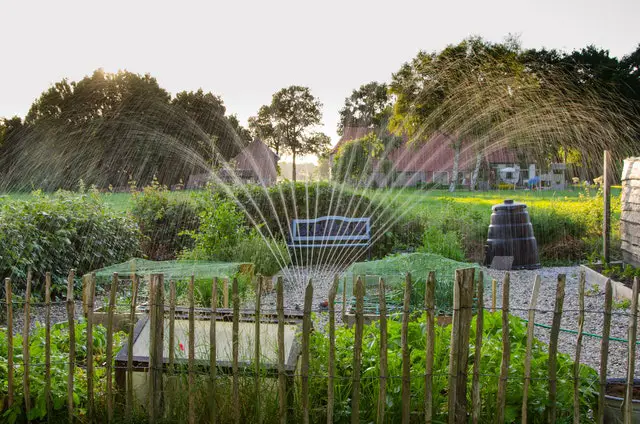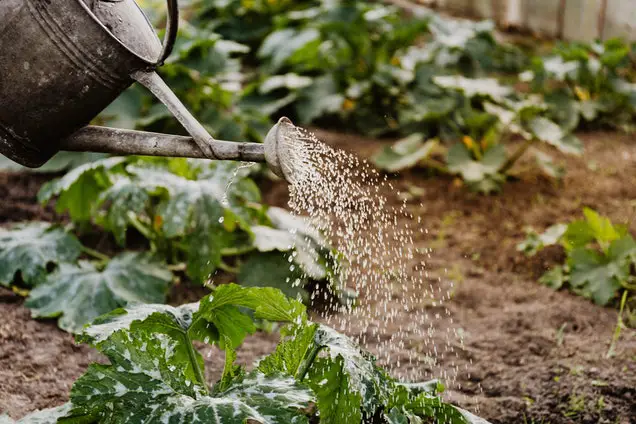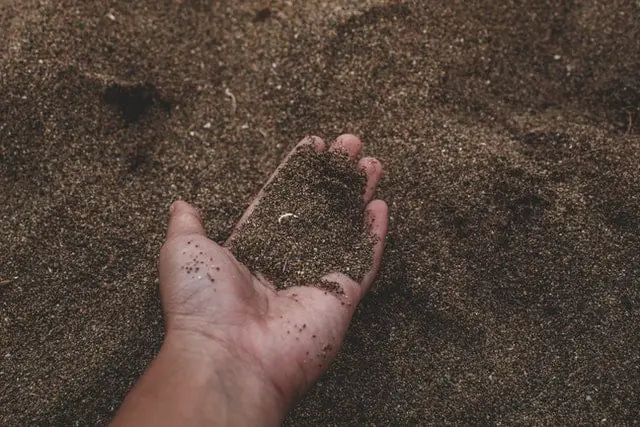Do you know excessive irrigation can damage soil. How is over irrigation damaging to soil exactly?
For plants to thrive, they need balance. Creating a beautiful yard requires a balance of water, sunlight, and nutrients. Unfortunately, the balance of this soil can be disturbed for years by overwatering or the addition of nutrients to the soil. Over-irrigation is the worst thing that you can do to your soil fertility.
Excessive irrigation or watering hurts the soil in many ways, particularly causing water-logging and making soil swampy and dense. Ultimately, this can harm your plant’s health in several ways.
Unfortunately, a lot of people believe that excessive irrigation does not harm the soil. However, any excess can damage plants, and this applies to irrigation as well. So, what are the effects of overwatering? We examine how is over irrigation damaging to soil and other important tips to keep your garden healthy.
How Is Over Irrigation Damaging To Soil?

A primary reason that over-irrigation harms the soil is that it reduces aeration, resulting in anaerobic conditions. However, Over-irrigation does not only cause drainage problems because of oxygen deficiency, and Waterlogged soil can also become compacted.
In addition, overwatering damages the soil, which has a secondary effect on the growth of plants. Compromise roots, increased salinity, nutrient leaching, and rot are all causes of stunted plant growth. When over-irrigated, soils become dense and swampy, making it impossible to grow common garden crops.
During droughts, farmers increase the irrigation they use for their crops to combat damage caused by drought. Since this increase provides enough water for the crops to endure droughts, it acts as an insurance policy against them.
It is, however, possible to damage the soil by overwatering. When a field is overwatered, its root zone is saturated with greater moisture than its capacity.
The crop capacity is determined by the amount of moisture the crop can hold. A moisture level above this limit will prevent the crop from getting water and nitrogen and drain out of its roots.
In addition to increasing the soil’s salinity, over-irrigation has other damaging effects. Most crops cannot thrive in salty conditions, which adversely affect their growth.
How Does Over-Irrigation Affect Plants?
The result of these effects is weed pressure and long-term waterlogging. High weed pressure means more weeds will grow across the soil surface than you would like, taking up valuable space and wiping out your remaining plants.
If you have to waterlog, your soil will become unbalanced, reducing your yard’s organic material. When organic matter is lacking in the soil, fewer nutrients enter it, and salt accumulates at the soil surface, preventing plants from absorbing nutrients.
When this occurs, the effects last throughout several seasons. In addition, Overwatering can cause the soil to become acidic, which allows weeds to thrive over plants since weeds thrive in acidic soils.
How To Prevent Over-Irrigation?

All of these problems can be avoided by intelligent irrigation. Unfortunately, it is difficult and time-consuming to repair the damage caused by irrigation, causing waterlogging in the soil. As a result, your yard may look untidy for several years before it begins to flourish again.
The perfect solution for your yard is an automatic sprinkler system, which waters your plants automatically when needed, saving you time and money.
Aside from drainage, you should also think about plant and soil health. By removing excess water, a drainage system keeps the soil aerated and helps it to retain the necessary nutrients.
Is It Harmful To Over Irrigate?
Undoubtedly, over-irrigation is harmful to not only plants but also the soil that supports them. Nutrients are transported by water, and too much water can harm, such as washing away essential nutrients. In addition, during rainy weather, over-irrigation or overwatering can cause a detrimental effect.
An abundance of yellow leaves, dying seedlings, and drooping plants are common sights after a week of rain. If not, try it out. Experts tend to agree in most cases; if not, try it out. A hands-on approach is always preferable to someone’s theory.
Over-irrigating soil is caused by several factors
Many growers increase their irrigation rates and volumes to combat the adverse effects of drought on plants. Usually, these measures would increase the cost of irrigation.
Some growers, however, use solar-powered water pumps to power their irrigation systems. As a result, they incur no additional costs when increasing irrigation rates.
When people are trying to beat drought by raising irrigation rates, they sometimes go overboard. The result is over-irrigation. Overflowing groundwater damages plants and soil when it leaks into the root zone, where most damage occurs.
Also read: Will Ammonia Kill Grass?
Summary
What are the effects of over-irrigation on the soil? Over-irrigation damages the soil by raising its salinity. Salt usually accumulates in deeper parts of the earth (around the root zone). Excess water will push salt upwards into the root zone when over-irrigation causes water to leak into the root zone.
The result is salinization of the soil. When there is too much water in the ground, there is less space available for air exchange. The result is a decline in aeration, and beneficial organisms (microorganisms) eventually die.
Frequently Asked Questions
Is too much water harmful to the soil?
Now that we have seen how the plants react, let’s move on to what occurs below the surface. Water table areas below the ground are responsible for collecting excess water. However, when they become too full, water reaches the aerated soil above.
How long-term effects does over-irrigation have?
All of the changes listed above are not even the ultimate damages that overwatering can cause. Waterlogging can disrupt the balance of your soil. Moreover, it dissolves all the nutrients in the ground, making them less powerful and useful.
What are the effects of over-irrigation on the environment?
Water is taken from rivers, lakes, and other water sources for irrigation. Consequently, they have a direct impact on the environment.
Several effects are associated with irrigated areas, including higher groundwater levels, a reduction in downstream water flow in the sourced streams and rivers, and an increase in evaporation. A higher evaporation rate can lead to an unstable atmosphere and increased rainfall in irrigated areas.
Changes in the natural humidity of the local atmosphere are directly responsible for all of this.

Hey, I’m Lisa and I’ve been an avid gardener for over 30 years. I love writing, talking and living in the garden! Feel free to connect with me on my socials below

